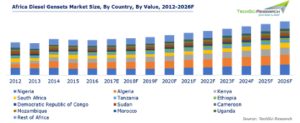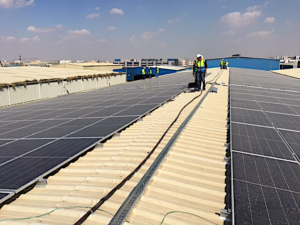While the global economy crawls slowly out of the pandemic-induced recession, energy users across Africa are at risk of paying a heavy price. As governments have been piling up debt to finance rescue-packages, the IMF warns of a looming debt crisis. In sub-Saharan Africa in particular, public debt in 2020 increased to its highest level in 20 years. Rising oil prices lay an additional toll on most countries. We all know what this means for businesses in Africa that already – with exception of a few – pay 25-50 % more on average for their electricity than competitors in other parts of world. Electricity and fuel prices are set to rise, as governments need to slash subsidies to prevent a public debt crisis.
On this backdrop, it is encouraging that more and more businesses across Africa are going solar. This way, companies reduce their monthly electricity bill from the utility. By going solar, they also use less of diesel-fueled gensets, which are the most expensive and polluting energy source. As early movers, these businesses contribute to setting new standard for industry sustainability and climate action by African industries, much valued by employees and business partners.

At Empower, we are excited to be an active player in this decentralized energy revolution. Last week, Empower and its local partners reached two important milestones: In Egypt, we started the construction of our second solar-for-business investment, a rooftop solar PV plant feeding green electricity to a local aluminum manufacturer. The same week, Empower signed a new Power Sales Agreement in Ghana, a contract that will lead to the construction of a solar PV plant for a leading Ghanaian agrobusiness company.

A question that often arises from clients and partners is how a solar electricity tariff pegged to the US dollar can be competitive in countries whose local currencies tend to depreciate against the dollar. The answer is that the existing sources of energy, i.e. fuel prices and the local grid tariffs, also fluctuate with changes to the USD exchange rate. For example, in Nigeria, Ghana and Egypt, the local currency depreciated more than 250% in the last 10 years, and in Kenya about 50%. However, despite this major currency deprecation over the 10 years period, the average tariffs paid to the local utility in USD terms have all remained remarkably stable over the period. This is because local fuel and electricity prices are either directly or indirectly indexed to changes in the currency exchange rate.


